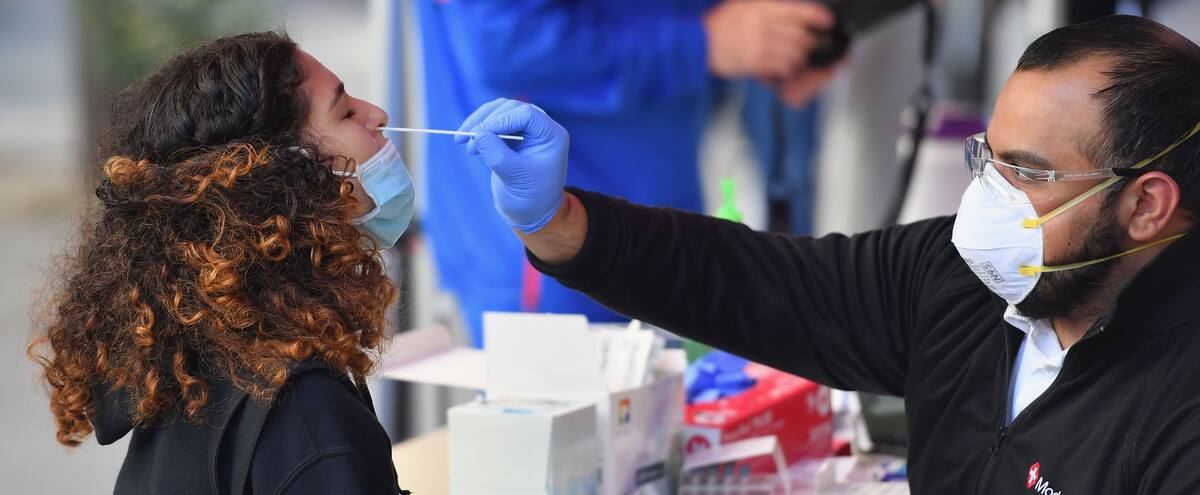The health crisis leaves no respite for Canadians from coast to coast to coast to coast enjoying the Thanksgiving long weekend.
• Read also: Part of the Outaouais will pass into the red zone
• Read also: All the developments of the pandemic
On Saturday, Ontario and Quebec reported 809 and 1097 new infections, respectively, or 1906 alone. The two provinces have the worst results linked to coronavirus disease since the start of the pandemic.
Ontario now has 58,490 cases, so 3,004 deaths, while Quebec has 85,191, including 5,950 fatalities.
Nova Scotia added three cases to its toll on Saturday, for a total of 1,092 cases.
As of early afternoon, the country was reporting 180,026 cases (+1909) and 9,606 deaths (+21).
Increase in contamination among older groups
According to Dr. Theresa Tam, Chief Public Health Officer in Canada, trends in the spread of COVID-19 are changing.
“For example, while the greatest numbers of cases were recorded in the 20-39 age group over the summer, we are now seeing an increase in the number of cases among older people, who have a higher risk of suffering serious repercussions, ”she said on Saturday, adding that there has been a growth in recent weeks of outbreaks in long-term care centers and retirement homes.
“While these outbreaks resulted in a smaller number of cases compared to those recorded in April and May, we know that outbreaks at these facilities often result in deaths. We must make every effort to prevent the introduction and spread of the virus in these settings, ”said Dr. Tam.
Quebec: 85,191 cases (5,950 deaths)
Ontario: 58,490 cases (3,004 deaths)
Alberta: 19,995 cases (282 deaths)
British Columbia: 10,185 cases (245 deaths)
Manitoba: 2,428 cases (30 deaths)
Saskatchewan: 2,034 cases (24 deaths)
Nova Scotia: 1,092 cases (65 deaths)
Newfoundland and Labrador: 279 cases (4 deaths)
New Brunswick: 238 cases (2 deaths)
Prince Edward Island: 61 cases
Yukon: 15 cases
Northwest Territories: 5 cases
Nunavut: 0 cases
Canadian returnees: 13 cases
Total: 180,026 cases (9,606 deaths)
 Canada Live NEWS – 24/7 Breaking Headlines & Updates Canada Live News is one of the largest news curating sites across Canada which is made exclusively for Canadian people.
Canada Live NEWS – 24/7 Breaking Headlines & Updates Canada Live News is one of the largest news curating sites across Canada which is made exclusively for Canadian people.
